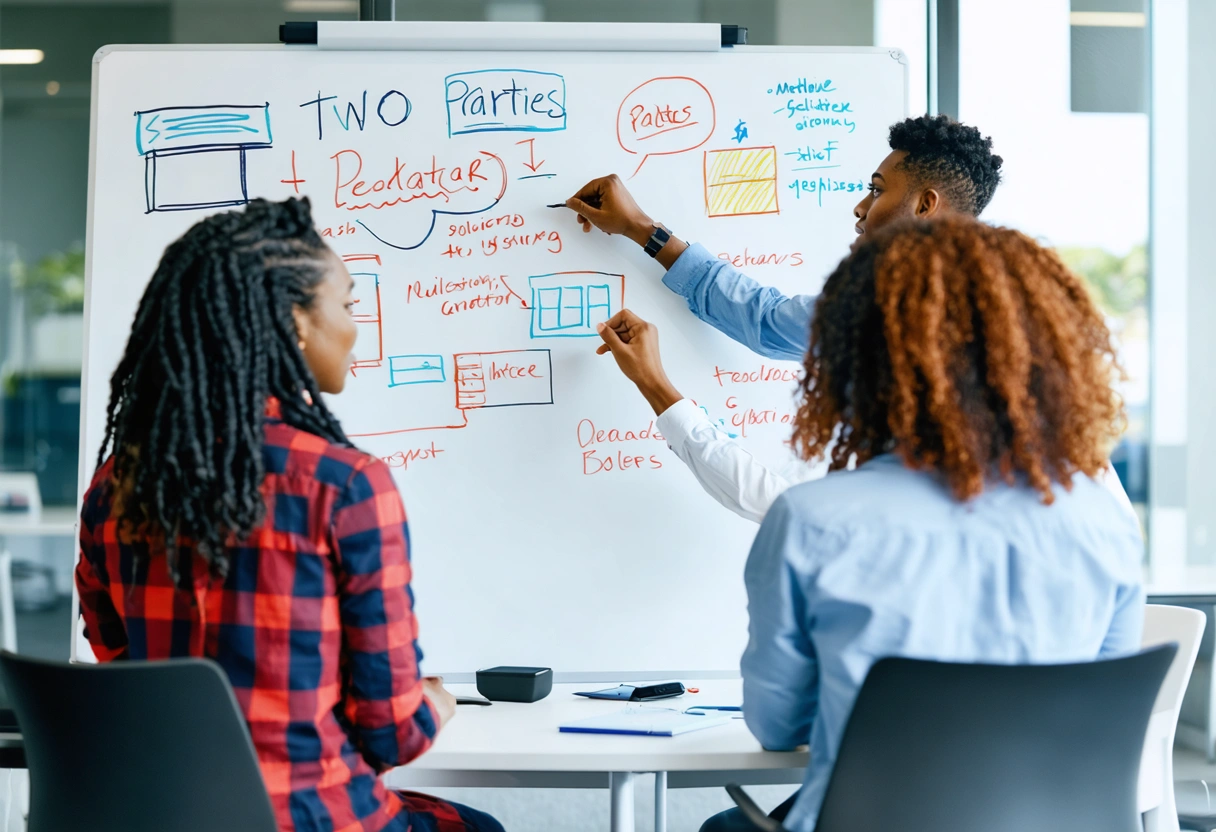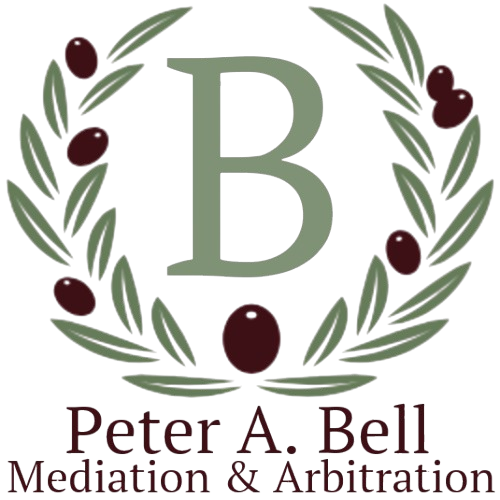How to Prepare for Your First Mediation Session: Tips and Strategies for Success
Mediation has become one of the most effective and widely used methods within the field of alternative dispute resolution (ADR). Whether you are facing a workplace conflict, a family dispute, or a business disagreement, mediation offers a confidential, cost-effective, and collaborative way to resolve issues without the need for litigation. If you are preparing for your first mediation session, it is natural to feel apprehensive or uncertain about what to expect. This comprehensive guide will walk you through everything you need to know to enter your first mediation session with confidence, clarity, and the best chance of achieving a favorable outcome.
This article is part of our Alternative Dispute Resolution 101 series and is designed for individuals, business owners, HR professionals, and anyone new to mediation. We’ll explore the mediation process, practical preparation steps, essential strategies, and tips for navigating the session itself. By the end, you will have a deep understanding of how to approach your first mediation session for maximum benefit.
What is Mediation?
Mediation is a voluntary, confidential process in which a neutral third party (the mediator) helps disputing parties communicate, explore options, and work toward a mutually acceptable agreement. Unlike a judge or arbitrator, the mediator does not impose decisions but facilitates dialogue and negotiation. Mediation is used in a wide range of contexts, including family law, employment disputes, commercial disagreements, landlord-tenant issues, and even community conflicts.
According to the New York Courts’ ADR overview, mediation empowers participants to craft their own solutions, often preserving relationships and saving time and money compared to litigation. The process is future-focused and encourages creative problem-solving, making it a popular choice for those seeking an amicable resolution.
Understanding the Mediation Process
Before you prepare for mediation, it is crucial to understand what the process typically involves. Most mediation sessions follow a structured format, although the specifics can vary depending on the mediator’s style, the nature of the dispute, and the setting.
The session usually begins with an introduction from the mediator, who will explain the ground rules, confidentiality, and their neutral role. Each party then has an opportunity to present their perspective in an uninterrupted opening statement. The mediator may ask questions to clarify issues, highlight underlying interests, and guide the conversation. This is followed by joint discussions, private meetings (caucuses) if needed, and negotiations to explore possible solutions. If an agreement is reached, it is typically documented in a written settlement.
Some mediators may conduct pre-mediation calls or request written statements in advance. Familiarizing yourself with the process and asking your mediator what to expect can help reduce anxiety and enable you to prepare more effectively.

The Role of the Mediator
The mediator is a neutral facilitator whose primary job is to help the parties communicate effectively and identify common ground. They do not make decisions, take sides, or provide legal advice. Instead, the mediator uses specialized skills—such as active listening, reframing, and reality-testing—to manage emotions, clarify misunderstandings, and guide the conversation toward resolution. Understanding this role is key, as it underscores the importance of your own preparation and participation.
Gathering and Organizing Your Information
Preparation for mediation begins with gathering all relevant information and organizing your thoughts. This step is critical to ensuring you can present your perspective clearly and respond effectively to any points raised by the other party. Start by collecting any documents, emails, contracts, correspondence, financial records, or other materials related to the dispute. Organize them in a logical manner so you can access them quickly during the session.
It is also helpful to create a summary of the key issues from your perspective. Outline the main points of disagreement, your interests and needs, any previous attempts at resolution, and your goals for the mediation. If possible, try to anticipate the other party’s arguments and concerns as well. This preparation will help you stay focused and avoid being caught off-guard during the discussion.
Identifying Your Interests and Priorities
One of the most important steps in preparing for mediation is distinguishing between your positions and your underlying interests. A position is what you say you want (for example, “I want a refund”), while an interest is the reason why you want it (such as “I need to recover my investment because I have financial obligations”). Focusing on interests allows for more creative solutions and makes compromise easier.
Make a list of your top priorities, must-haves, and areas where you are willing to be flexible. Knowing your bottom line and your non-negotiables will help you negotiate confidently and avoid making concessions you might regret.
Setting Realistic Goals and Expectations
It is important to enter mediation with realistic expectations. Mediation is not about “winning” or “losing” but about finding a solution that both parties can live with. Most successful mediations involve some degree of compromise. Set clear, achievable goals for the outcome you hope to reach, but be prepared to adjust them as the conversation unfolds.

Consider what a satisfactory resolution would look like for you. Are you seeking an apology, financial compensation, a change in future behavior, or simply closure? Understanding your own goals will help you communicate them effectively and evaluate any proposals that arise during the session.
Understanding the Other Party’s Perspective
Empathy is a powerful tool in mediation. Take time to consider the situation from the other party’s point of view. What are their likely interests, concerns, and motivations? Why might they have acted as they did, and what outcomes are they hoping for? This perspective can help you anticipate objections, propose solutions that address both parties’ needs, and avoid unnecessary escalation.
By preparing to acknowledge the other party’s concerns and demonstrating a willingness to listen, you increase the chances of building trust and reaching a mutually beneficial agreement.
Practical Steps to Prepare for Mediation
Now that you understand the basics, let’s dive into practical steps you can take to maximize your success in mediation:
- Review relevant documents: Make sure you have all necessary paperwork, contracts, correspondence, and evidence organized and ready to present, if appropriate.
- Draft your opening statement: Consider preparing a brief, clear introduction outlining your perspective, your main concerns, and your hopes for the session. Keep it factual and respectful.
- Consult with professionals: If the dispute involves legal, financial, or technical issues, consider consulting with an attorney, accountant, or subject matter expert in advance. While mediators do not provide legal advice, you can bring your own advisor to the session if permitted. The Nolo Guide to Mediation offers a helpful overview of what to expect.
- Practice active listening: Effective mediation relies on good communication. Practice listening without interrupting, acknowledging the other party’s points, and asking clarifying questions.
- Plan your logistics: Confirm the time, date, location (or virtual platform), and duration of the session. Arrange for childcare, transportation, or time off work as needed so you can be fully present and focused.
- Prepare emotionally: Mediation can be emotionally charged. Practice relaxation techniques, set intentions for respectful communication, and consider how you will manage stress or frustration if it arises.
Preparing for Virtual Mediation
With the increased use of technology, many mediations now occur virtually. If your session will be held online, test your equipment, ensure a stable internet connection, and choose a quiet, private location. Familiarize yourself with the video conferencing platform in advance, and have digital copies of any documents you may need to share.

Virtual mediation offers added convenience and can sometimes make difficult conversations feel less intimidating. However, it requires additional preparation to avoid technical disruptions or distractions during the session.
Strategies for Success During the Mediation Session
Your behavior and approach during the actual mediation session can greatly influence the outcome. Here are proven strategies to help you succeed:
Communicate Effectively
Speak clearly, calmly, and respectfully. Focus on expressing your own needs and interests rather than blaming or criticizing the other party. Use “I” statements (“I feel…” or “I am concerned about…”) to communicate your perspective without escalating conflict.
Listen actively to the other party and the mediator. Take notes if helpful, and ask questions to clarify any points you do not understand. If you feel overwhelmed or emotional, request a break to regroup before continuing.
Stay Open-Minded and Flexible
Mediation requires a willingness to consider new ideas and make compromises. Avoid rigid demands or assumptions about the other party’s intentions. Be open to creative solutions that you may not have considered before. Remember, the goal is not to “win” but to find a resolution that works for everyone.
If the conversation gets stuck, the mediator may suggest breaking into private meetings (caucuses) to discuss sensitive issues or explore possible options. Use these opportunities to reassess your goals and strategies.
Focus on Problem-Solving

Approach the session with a solutions-oriented mindset. Instead of dwelling on past grievances, focus on what you can do to resolve the issue and move forward. Brainstorm options and evaluate them based on how well they meet both parties’ interests.
If you reach an impasse, ask the mediator for guidance or suggestions. Experienced mediators are skilled at helping parties reframe issues and identify new pathways to agreement.
Maintain Confidentiality
Everything discussed in mediation is confidential, which allows parties to speak freely and explore options without fear of repercussions. Do not disclose information from the session to outside parties without explicit permission. This confidentiality is a cornerstone of the process and encourages honest, productive dialogue.
What Happens After Mediation?
If an agreement is reached, the mediator or your attorney will typically draft a written settlement outlining the terms. Review this document carefully before signing, and ensure you fully understand your obligations and rights. In some cases, the agreement may be legally binding; in others, it may serve as a memorandum of understanding. If you have legal concerns, seek professional advice before finalizing any settlement.
If no agreement is reached, mediation does not preclude other options. You may still pursue litigation, arbitration, or further negotiation. Many parties find that even if the session does not result in a full resolution, it helps clarify issues and narrow the scope of disagreement for future discussions.
For more detailed insights into post-mediation steps, the Center for Court Innovation’s Mediation Guide provides an excellent overview of best practices and next steps.
Common Challenges and How to Overcome Them

Even with thorough preparation, challenges can arise during mediation. You may encounter strong emotions, entrenched positions, or misunderstandings that threaten to derail progress. Here are some strategies for overcoming common obstacles:
- Emotional reactions: If you or the other party become upset, ask for a short break. Use calming techniques such as deep breathing or positive visualization. Remind yourself of your goals and the benefits of reaching a resolution.
- Communication breakdowns: If the conversation becomes heated or unproductive, rely on the mediator to redirect the discussion. Focus on listening and restating points to ensure understanding.
- Unrealistic demands: If the other party makes unreasonable proposals, respond by restating your own interests and asking open-ended questions to explore alternatives. Seek common ground where possible.
- Impasses: If you reach a deadlock, ask the mediator for suggestions or propose breaking the issue into smaller, more manageable parts. Sometimes, resolving one aspect of the dispute can create momentum for addressing others.
It is helpful to review resources such as the Mediate.com Guide to Mediation for additional tips and case studies on handling difficult situations.
Additional Resources for First-Time Participants
Education is your best ally when approaching mediation for the first time. Numerous organizations, including the Program on Negotiation at Harvard Law School, offer free articles, webinars, and guides to deepen your understanding of negotiation and alternative dispute resolution techniques.
Consider attending a workshop, reading mediation books, or seeking support from a local mediation center. The more you learn about the process, the more confident and empowered you will feel during your session.
Enter Mediation with Confidence
Preparing thoroughly for your first mediation session can make a significant difference in your experience and the outcome. By understanding the process, organizing your information, setting realistic goals, and practicing effective communication, you give yourself the best chance of success. Remember, mediation is a collaborative process designed to help parties find common ground and move forward, often in ways that litigation cannot achieve.
Take advantage of the wealth of educational resources available, consult with professionals as needed, and approach the session with an open mind and a commitment to problem-solving. With the right preparation and mindset, you can turn your first mediation session into a valuable opportunity for resolution, personal growth, and better future relationships.
Need help with How to Prepare for Your First Mediation Session: Tips and Strategies for Success?

